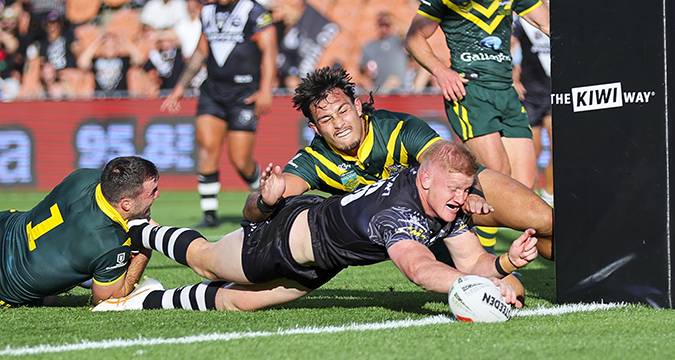 IT was a game and a result to make the Rugby League world sit up and take notice.
No, nothing that has happened on these shores in the last few weeks, as England whitewashed Tonga in a largely uninspiring series.
The highlight of the post-season international window, of course, came in Hamilton, where New Zealand inflicted the heaviest-ever T
IT was a game and a result to make the Rugby League world sit up and take notice.
No, nothing that has happened on these shores in the last few weeks, as England whitewashed Tonga in a largely uninspiring series.
The highlight of the post-season international window, of course, came in Hamilton, where New Zealand inflicted the heaviest-ever T What’s the current Rugby League world order after international window?
 IT was a game and a result to make the Rugby League world sit up and take notice.
No, nothing that has happened on these shores in the last few weeks, as England whitewashed Tonga in a largely uninspiring series.
The highlight of the post-season international window, of course, came in Hamilton, where New Zealand inflicted the heaviest-ever T
IT was a game and a result to make the Rugby League world sit up and take notice.
No, nothing that has happened on these shores in the last few weeks, as England whitewashed Tonga in a largely uninspiring series.
The highlight of the post-season international window, of course, came in Hamilton, where New Zealand inflicted the heaviest-ever T 